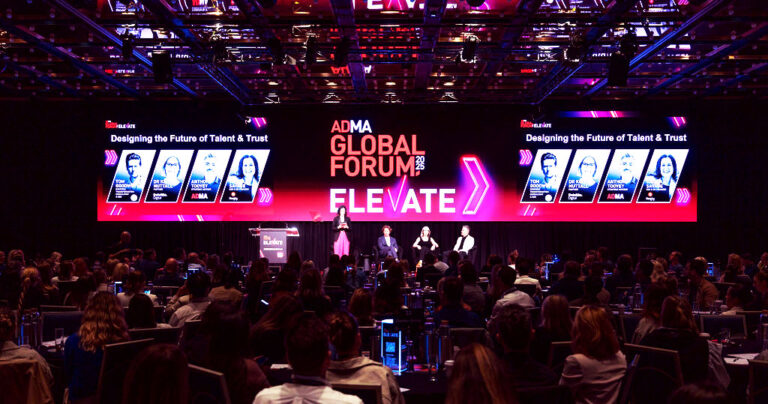By Luli Adeyemo.
I recently came across research that made me think differently about the Australian events industry. Not in a critical way, in a curious way.
The data shows 91% (source –MICE.net.au) of venues aren’t using AI to manage event inquiries, and 53% of corporate event planners aren’t using AI in their planning workflows. They’re navigating fragmented tools, unclear integration, and uncertain where to start.
As someone who spends a lot of time thinking about how organisations make strategic decisions about AI, I found myself asking: What if we looked at this through a different lens?
The Governance Question
In my work on AI across sectors, I focus on a simple question: How do organisations make decisions about the technology that shapes their operations?
It’s not really a technology question. It’s a governance question. And it applies everywhere, including events.
When I look at the events industry’s relationship with AI, I see an opportunity to ask that same question differently. Not “Why aren’t venues using AI?” but “How should the events industry be thinking about AI integration?”
The research shows planners are managing multiple disconnected tools. They’re spending five-plus hours on manual booking processes. They see AI’s potential but feel overwhelmed by fragmentation. What’s interesting is that this isn’t a problem unique to events. It’s a pattern I see across sectors: organisations adopting tools without a clear strategic framework for how those tools work together.
Translation, Not Prescription
At Best Case Scenario, we’ve spent 30+ years bringing the right people together to have meaningful conversations. I’ve watched industries grapple with technology adoption across government, healthcare, finance, and now tech itself. What I’ve learned is that the most successful transitions happen when organisations think strategically about integration, training, and governance, before the tools are deployed.
The events industry is at an interesting inflection point. Corporate events are shifting to more frequent, smaller gatherings with shorter lead times. Planners are under real pressure to work smarter. And AI tools that could help both with the mechanical work and the strategic thinking are available.
But “available” and “strategically integrated” are two different things.
What This Looks Like in Practice
Strategic thinking about AI in events might sound like:
Starting with the actual workflow. Planners spend time searching for venues, managing communications, coordinating logistics. Where does AI genuinely ease friction? Where does it create more work? Those answers are different for every organisation.
Integration as a first principle. Instead of adopting individual tools, thinking about how data flows between systems. How inquiry management connects to analytics, to attendee experience, to future planning.
Training as investment. Planners want to use AI well. They’re asking for guidance, frameworks, clarity. That’s not resistance—it’s maturity. Investment in training isn’t a cost; it’s how you unlock the actual value of the tools you’re adopting.
Governance that’s clear. Who decides which tools get adopted? On what basis? Who measures whether they’re working? These questions sound formal, but they’re actually just good business practice.
None of this is new thinking. It’s how mature organisations approach any significant operational change. But it’s rarely applied intentionally to AI adoption in events.
Why This Matters
The events industry has always been about bringing the right people together to have meaningful conversations. That’s literally what we do at Best Case Scenario. The irony is that as AI tools become available to help with the mechanics of event planning, the industry still needs what it’s always needed: thoughtful strategy, integration, and clarity about how technology serves the actual goal.
The research showing low AI adoption in events isn’t a deficit. It’s an opportunity. It’s a moment to think clearly about what AI integration should actually look like, rather than simply adopting because adoption is expected.
—
Ready For Us to Shape Your Next B2B Event?
For business leaders and associations seeking an event management partner who understands the intersection of technology, innovation, and marketing leadership, Best Case Scenario delivers the strategic collaboration and operational excellence required for truly transformative industry gatherings.
Contact us today to discuss how we can help bring your industry transformation vision to life.

Unlock Tailored Event Solutions for 2025
Planning your events for 2025? At Best Case Scenario, we understand that each event is unique, and we’re here to help you bring your vision to life. Our A La Carte Event Services offer flexible, customised solutions that align perfectly with your goals, whether it’s brand awareness, or client engagement.




